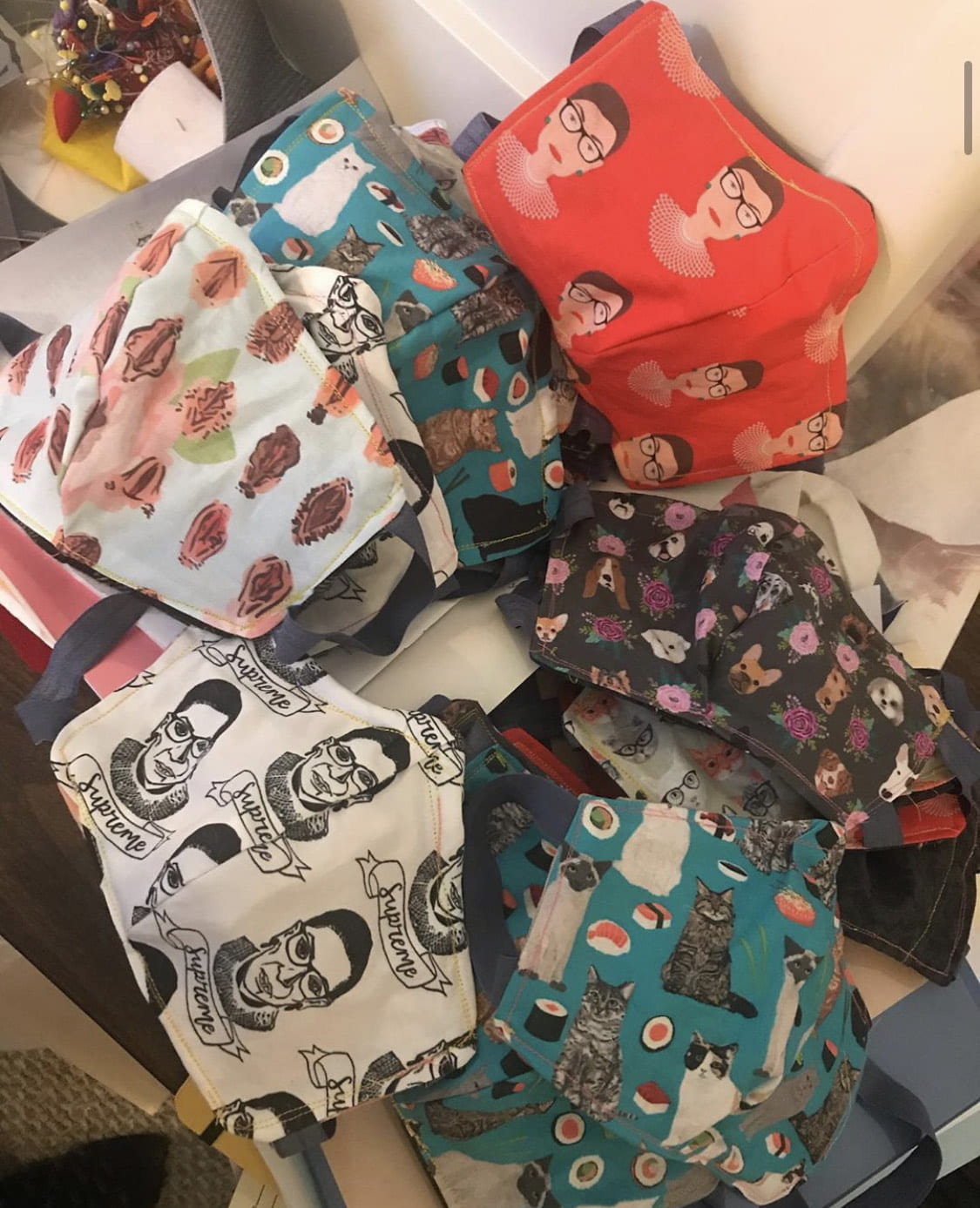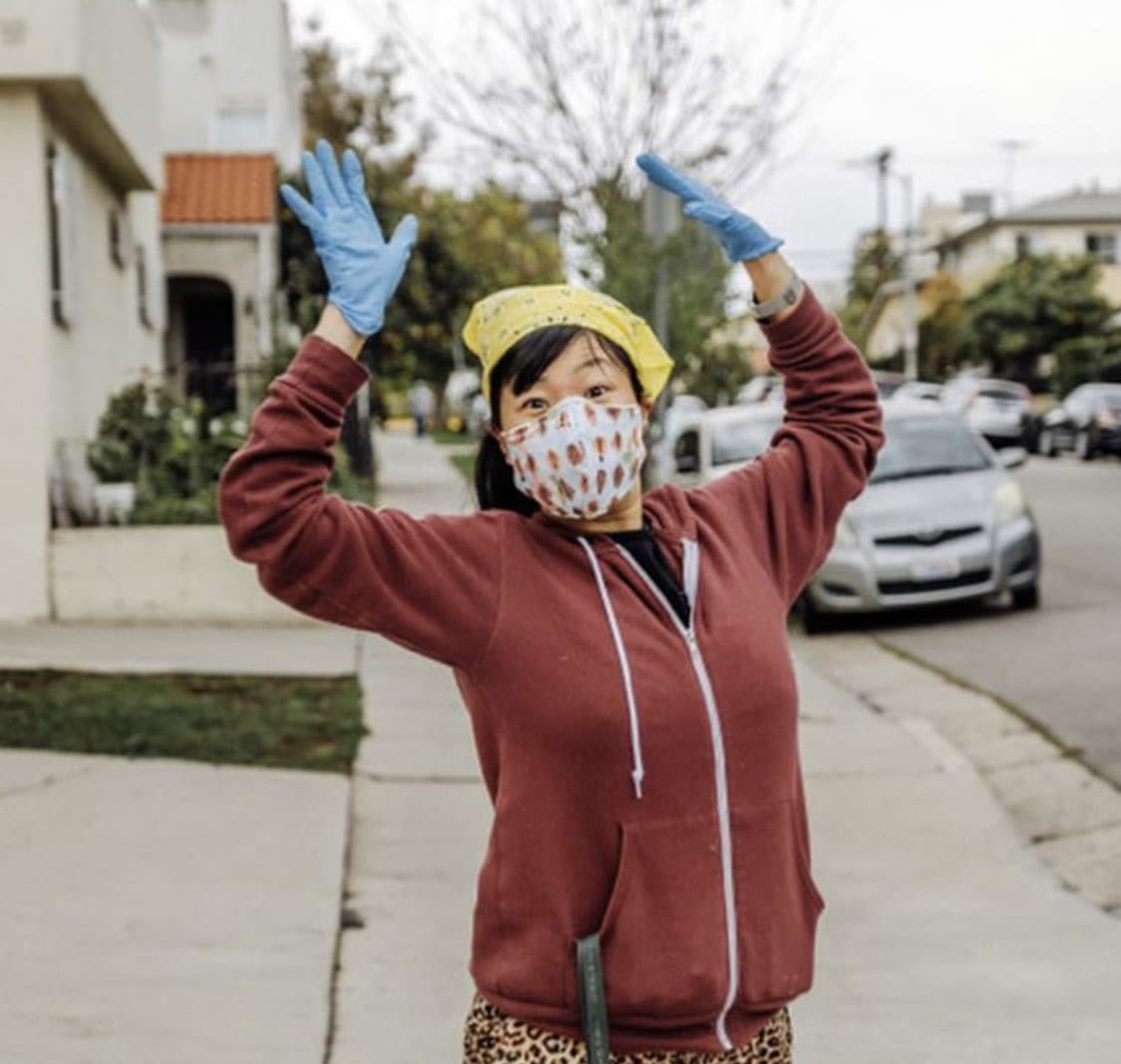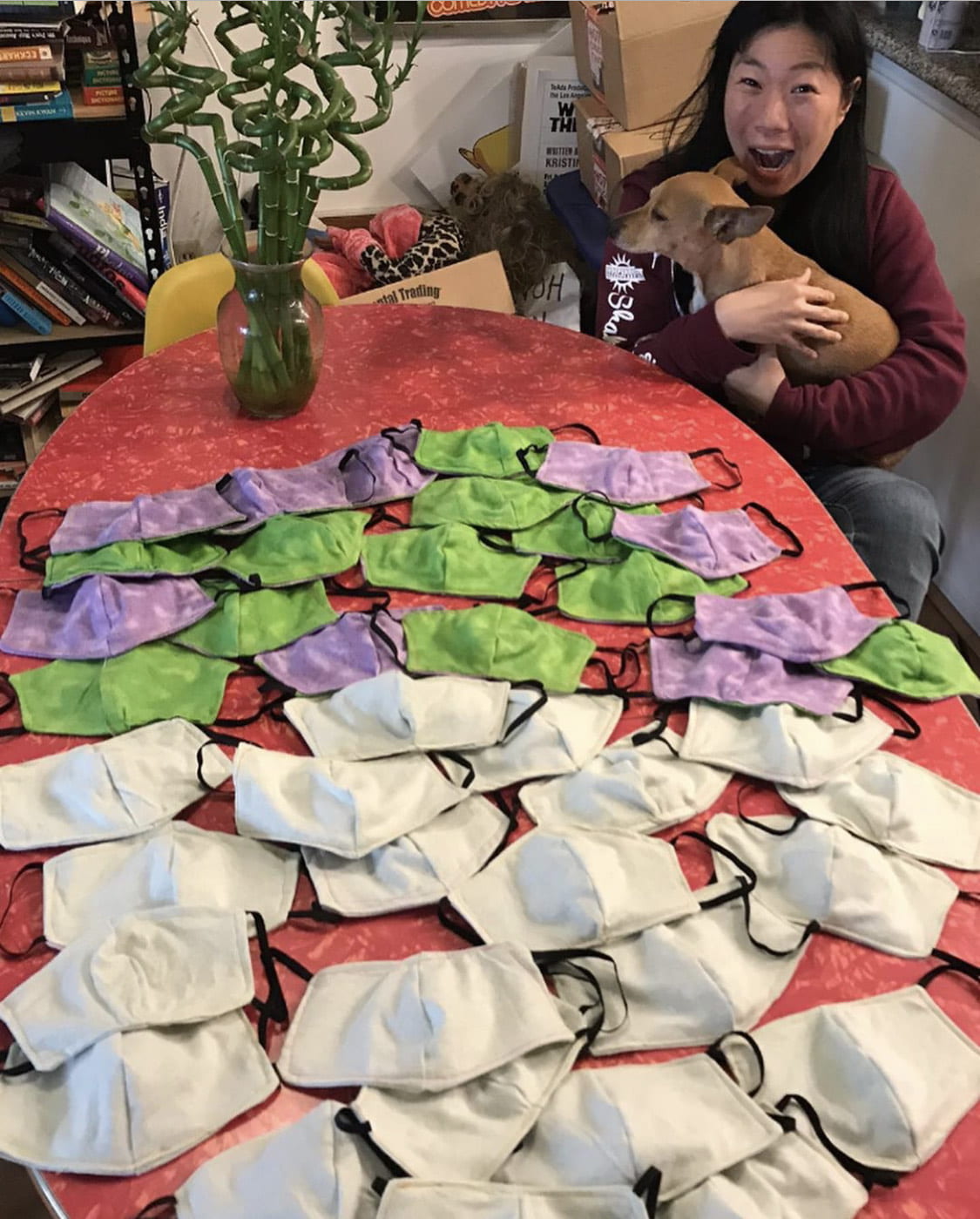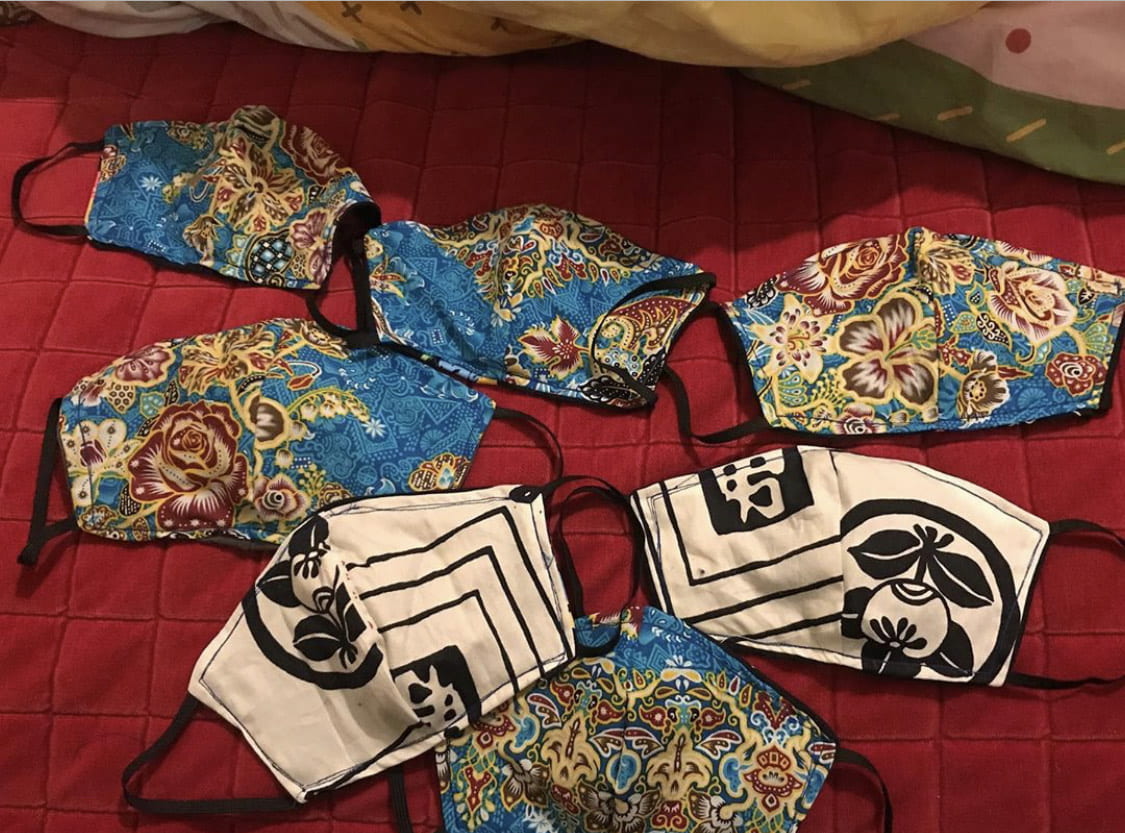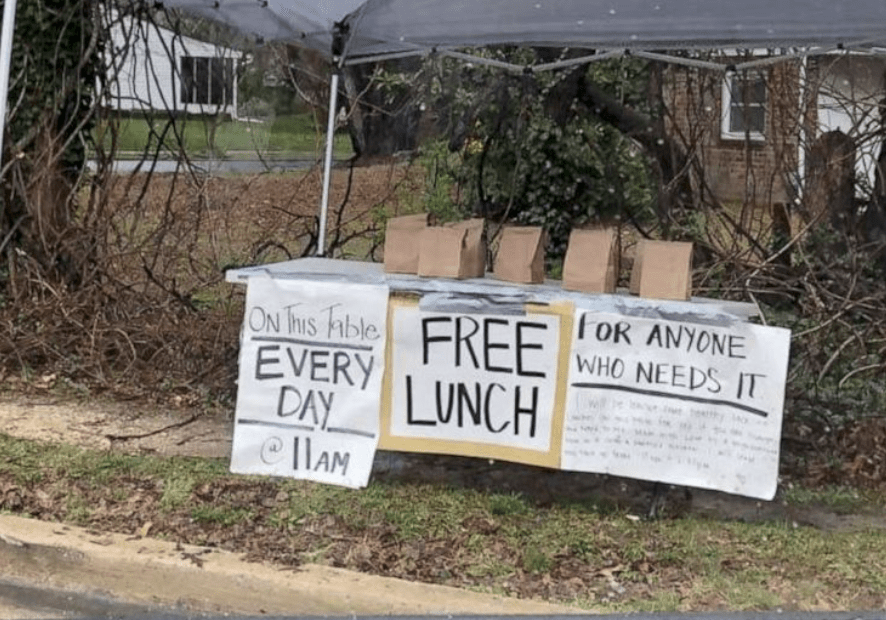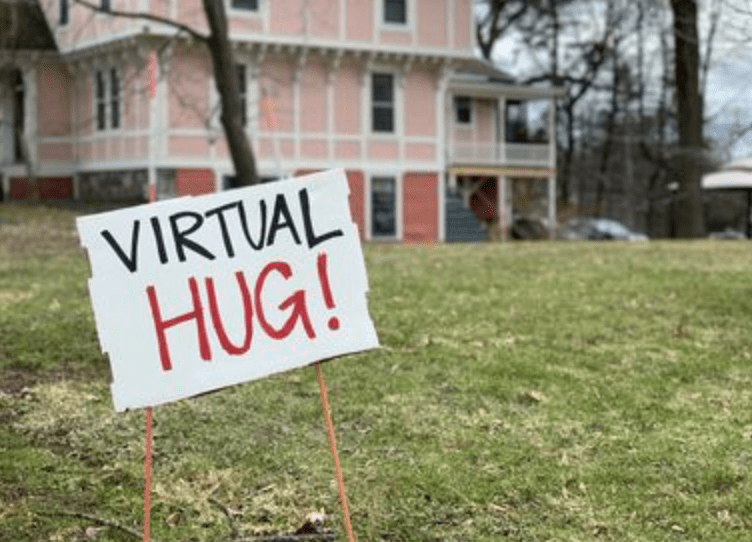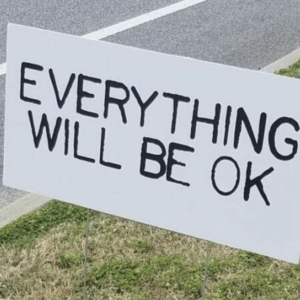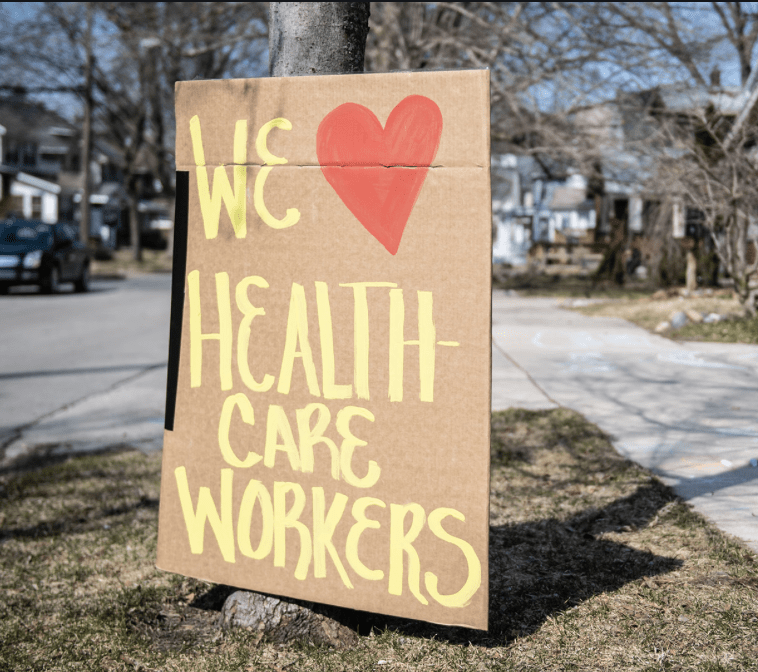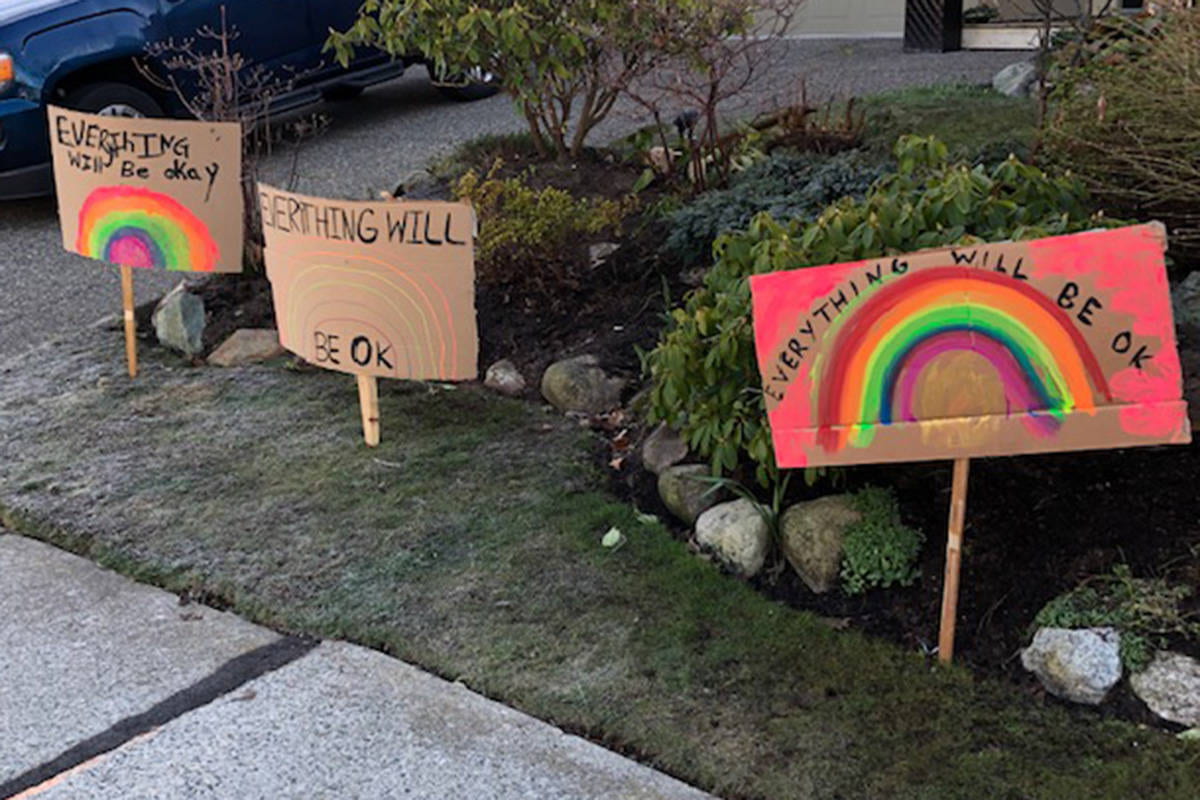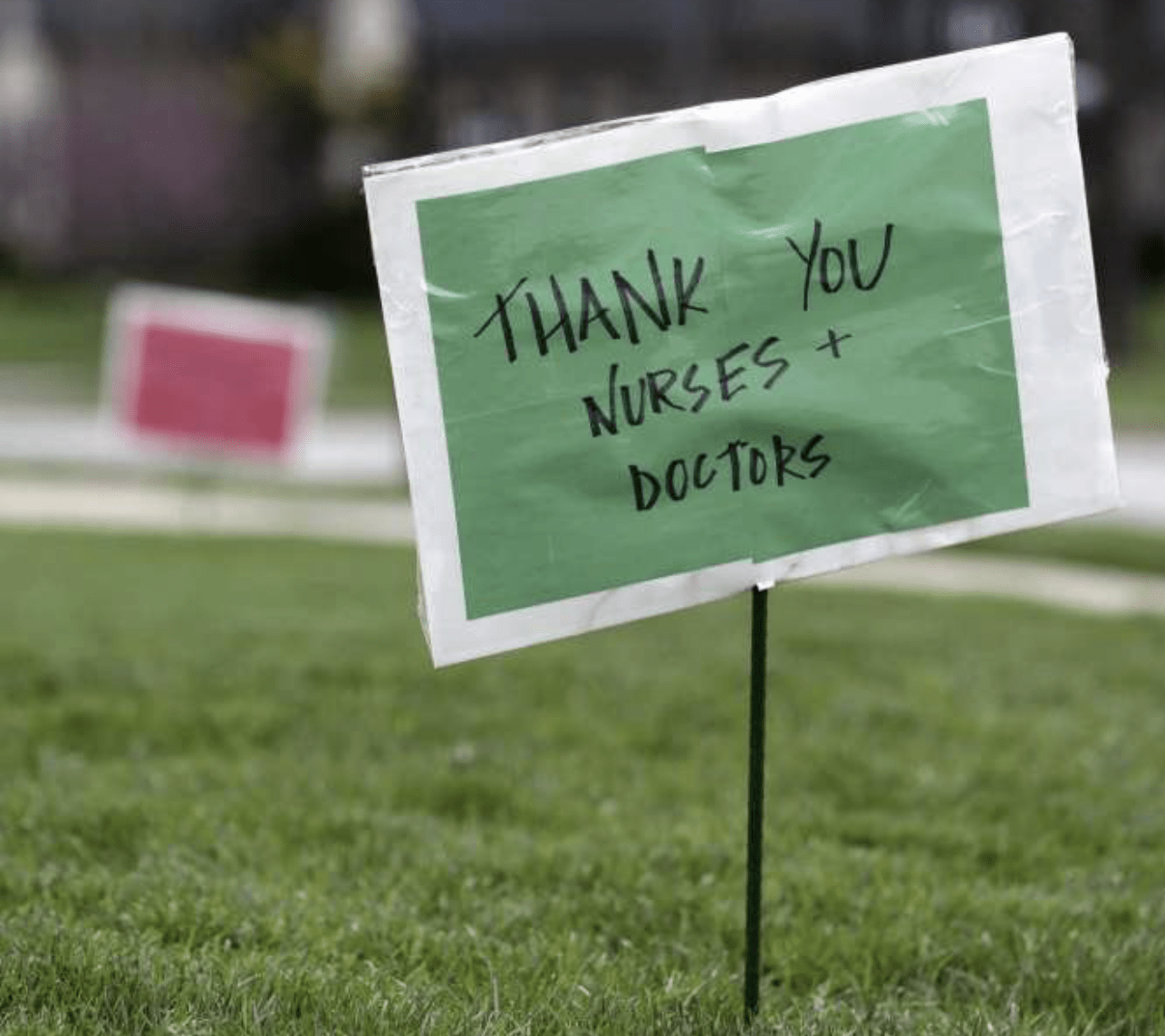Every Sunday stay tuned for Action@PAM We want to help. And we know you want to help too. Our Action@PAM initiative is tailored towards providing tangible resources and ways we can come together as a community to help care for one another amidst the tumult.
Below please find the weekly archive:
Sunday, July 19, 2020: Action@PAM – Senator Tammy Duckworth
Meet Tammy Duckworth, Asian American activist, veteran and U.S. Senator. In 2004 Duckworth was deployed to Iraq and left her political science PhD program to serve. While on a mission, Duckworth’s helicopter was shot down and she lost both of her legs in the accident. During her recovery, Duckworth fervently advocated for veterans’ rights, an effort that launched her political career. In 2012 Duckworth became the first differently abled woman elected to the House of Representatives and the second Asian American woman elected to the U.S. Senate. Blazing more trails, she was the first person to bring a baby down to the floor to vote. The vote came one day after the Senate changed longstanding rules to allow newborns onto the Senate floor during votes for the first time. The rule change was done to accommodate senators like Duckworth with newborn babies, allowing them to bring a child under 1-year-old onto the Senate floor and breastfeed them during votes.
Sunday, July 12, 2020: Action@PAM – Census 2020
Have you taken part in the 2020 Census? It is more important than ever to fill out the 2020 Census to make your voice and community count. We all deserve the tools to not just survive in life but thrive and the #Census is vital in allocating resources for our communities. Link in Bio to take part!
Sunday, July 5, 2020: Action@PAM – Hit Pause on Hate
USC PAM is proud to join @uscedu and hundreds of businesses in the #StopHateForProfit campaign and not advertise on Instagram or Facebook’s services at least through the month of July.
We will instead, continue to use these platforms in a non-paid manner to promote our mission of intercultural understanding, equality and inclusion.
Sunday, June 28, 2020: Action@PAM – iWitness at Shoah Foundation
Take time to continue educating, listening and learning by deepening your understanding surrounding racism and identity-based hate in the U.S. We encourage you to access the USC Shoah Foundation’s iWitness platform where you can view testimonials and videos that will help you analyze and think critically about anti-Black racism and other forms of identity-based hate through testimony. And to learn how to take action!
Images:
Still frame 1:
Paul Parks, a Liberator, explaining why it was important for him to fight in World War II.
Still frame 2:
Katsugo Miho a Japanese-American Liberator. Miho remembers witnessing racism towards Black service members, and discusses how the Japanese soldiers reacted to seeing discrimination.
Courtesy of @uscshoahfoundation
Wednesday, June 3, 2020
Yuri Kochiyama, born in 1921 she was raised in a working class neighborhood in San Pedro, California. After the attack on Pearl Harbor, Yuri’s father – a first-generation Japanese immigrant – was arrested by the FBI. Yuri and her family were sent to an internment camp in Jerome, Arkansas. While in Arkansas, Yuri observed strong parallels between how the African American community in the Jim Crow South and her community of incarcerated Japanese Americans were treated. This experience of cross cultural understanding based on shared struggles among Japanese and African American communities during the WWII era inspired Yuri to devote her life to advocate against racial injustice against all historically disenfranchised Americans.
Now a mother of six, in 1960 Yuri moved her family to a low-income housing project in Harlem. Yuri invited many civil rights activists, such as the Freedom Riders, to gatherings in her home. She also became an active leader and member of the Harlem Parents Committee, a grassroots organization they fought for safer streets and integrated education. Yuri also advocated on behalf of political prisoners in the U.S. and other parts of the world. Yuri was nominated for the Nobel Peace Prize in 2005 for her tireless struggles against racism. She died on June 1, 2014 in Berkeley, California. She was 93 years old.
Monday, June 1, 2020: Black Lives Matter
Written in love and solidarity from #USCPAM
Sunday, May 31, 2020: Action@PAM
Martin Luther King, Jr. and Thich Nhat Hanh, a Buddhist monk from Vietnam, in a news conference held on May 31, 1966. Leading up to this news conference Hanh activated King’s empathy in a letter throwing sharp light on the atrocities shared between the Vietnamese and the American black community. “I am sure that since you have been engaged in one of the hardest struggles for equality and human rights, you are among those who understand fully, and who share with all their heart, the indescribable suffering of the Vietnamese people. The world’s greatest humanists would not remain silent. You yourself cannot remain silent.” Inspired by Hanh, King spoke out in a rousing speech “A Time to Break Silence: Beyond Vietnam” “I am moved to break the betrayal of my own silences and to speak from the burnings of my own heart…Somehow this madness must cease. We must stop now. I speak as a child of God and brother to the suffering poor of Vietnam. I speak for those whose land is being laid waste, whose homes are being destroyed, whose culture is being subverted. I speak of the — for the poor of America who are paying the double price of smashed hopes at home, and death and corruption in Vietnam…I speak as one who loves America, to the leaders of our own nation: The great initiative in this war is ours; the initiative to stop it must be ours.” Exactly one year after delivering this speech King was gunned down, Hanh carried their mantle forward.
Author and black activist Bell Hooks posed this question to Hanh: “And lastly, what about fear? Because I think that many white people approach black people or Asian people not with hatred or anger but with fear. What can love do for that fear?” Hanh responded: “Fear is born from ignorance. We think that the other person is trying to take away something from us. But if we look deeply, we see that the desire of the other person is exactly our own desire—to have peace, to be able to have a chance to live…And there is no understanding if there is no effort to look more deeply to see what is there in our heart and in the heart of the other person.” King and Hanh cleared ground to stand on together. And to look back at their willingness to confront hate together, is to see forward a basis for a deep solidarity that sustains movement building.
Thursday, May 24, 2020 – Action@PAM – Meet Kalpana Chawla, the first Indian-born woman in space
After immigrating to the U.S. to attend graduate school, Kalpana Chawla joined the crew of the space shuttle Columbia, flight STS-87 in 1996, to became the first Indian-born woman to fly in space.
In 2003, Chawla boarded Columbia again, on the STS-107 mission. During its 15-day mission, the crew completed nearly 80 experiments. However, during reentry, a piece of insulation broke off the shuttle, causing it to disintegrate killing Chawla and the six other crew members.
Chawla’s contributions to both science and the U.S. space shuttle program continue to resonate. Chawla posthumously received the Congressional Space Medal of Honor, the NASA Space Flight Medal, and the NASA Distinguished Service Medal.
Sunday, May 24, 2020 – Action@PAM – Celebrating Asian Pacific American Heritage Month by introducing Helen Zia
Zia famously said, “To be silent is a privilege.” An activist, author and journalist, she writes outspokenly and unapologetically about her experience as a second-generation immigrant, advocacy for LGBTQ+ youth, and sexual assault on college campuses.
In 1982, following the highly publicized, racially charged murder of Chinese draftsman Vincent Chin, Zia played pursued justice against his perpetrators. Originally Asian immigrants did not qualify for protection under federal civil rights law. His murderers received no jail sentence.
Through her investigating journalism and under her leadership at the American Citizens for Justice (ACJ), Zia galvanized the community to action. The group’s efforts culminated in a retrial, this time considering the crime as a civil rights case – realizing justice for Vincent Chin.
A lesbian woman of color, Zia served as an expert witness in Hollingsworth v. Perry, the Supreme Court case that paved the way for same-sex marriage in her home state of California.
Her marriage to Lia Shigemura marked one of the first legal same-sex marriages in the state’s history. Thank you for your tireless work Helen Zia!
Sunday, May 17, 2020 – PBS SoCal Asian American Activist
Action@PAM – @pbssocal “Asian Americans,” is a five-hour film series that delivers a bold, fresh perspective on the history of the fastest-growing demographic in the country today. In celebration of the series, longtime USC PAM collaborator, Teena Apeles, from @narratedobjects, profiled a few California-based Asian American activists that are enacting change in remarkable ways! Including some of our PAMily: We Are Here artist, #ReanneEstrada and our recent moderator, Kristina Wong! Read the article and watch the documentary here!
Sunday, May 10, 2020 – Shop Local, Shop@PAM
Small businesses empower creativity, passion and community. As you know, small businesses have been hit hard by the stay-at-home order. Shop@PAM proudly offers handcrafted goods from several local artisans and woman-owned businesses. These artisan businesses make our shop, our museum and our community special. We hope you’ll consider supporting these creators by following them on Instagram, sharing their photos and purchasing their goods at Shop@PAM.
Knotwork LA Daruma Coming Soon! Handcrafted Daruma remind us to never give up. Local ceramicist Linda Hasiao shares hope and joy in her charming creations. @lindahsiao
Pasadena artist Angela Yi creates meaningful ink brush painting printed on exquisite cashmere scarves. She donates a portion of profits to building schools for kids in Qinghai, Tibet. $295 @zhuyi.art
USC alum, former nurse and local entrepreneur Karen Bell crafts all natural soaps that are beautiful and good for the skin. A wonderful way to stay clean! $28 @hippysistersoap
Sunday, May 3, 2020 – Celebrating Asian American Pacific Islander Heritage Month
It’s May so that means it’s Asian Pacific American Heritage month! You can get active and engaged this month by joining us in celebrating and sharing the histories of Asian Americans and Pacific Islanders whose rich heritages and diverse skill sets shaped the history of the United States.
Donation Drive Thru Recap
The role of USC PAM has always been to expand the empathetic reach of our visitors, elevating our shared sense of humanity. We continue to do this work now outside of our four walls, serving the public in the ways that this moment demands.
As we evolve as a museum and a community, we realize that to move through this with grace and to find joy, even as we are called to keep to ourselves, is to continue honor the ways we are interdependent and interconnected through service. It was wonderful to see our community rise together yesterday for our second USC PAM donation drive. Yesterday we collected thousands more medical gloves, shoe coverings and hundreds of masks for our USC colleagues working the front lines at our affiliate hospitals as they still desperately need PPE.
Additionally there are hundreds of nurses, doctors and medical professionals in our community who have had to make the gut wrenching decision to leave home to protect their families from the virus. To further protect our community from the virus, they do not go out to shop for the items they need for themselves. So yesterday we collected these non-perishable food, drink and toiletries to deliver to them. Thank you to our community for showing up and giving all that you could, this all done to thank the front line medical workers who are making the ultimate sacrifice.
Thank you to all!
Sunday, April 26, 2020 – Donation Drive Thru
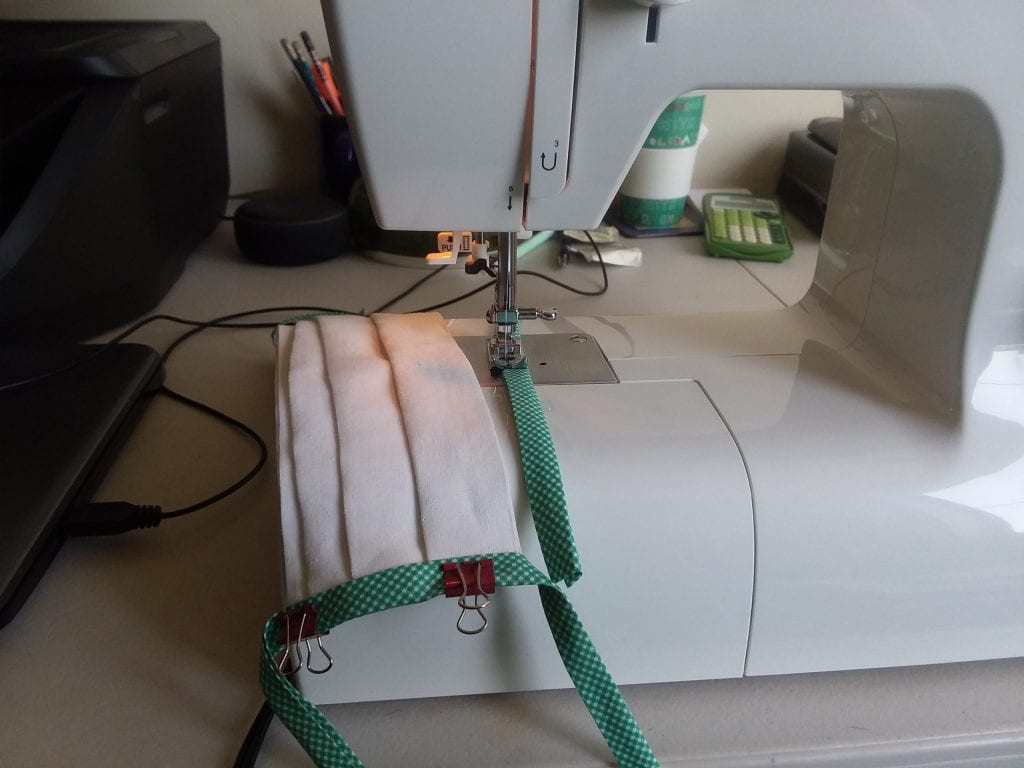
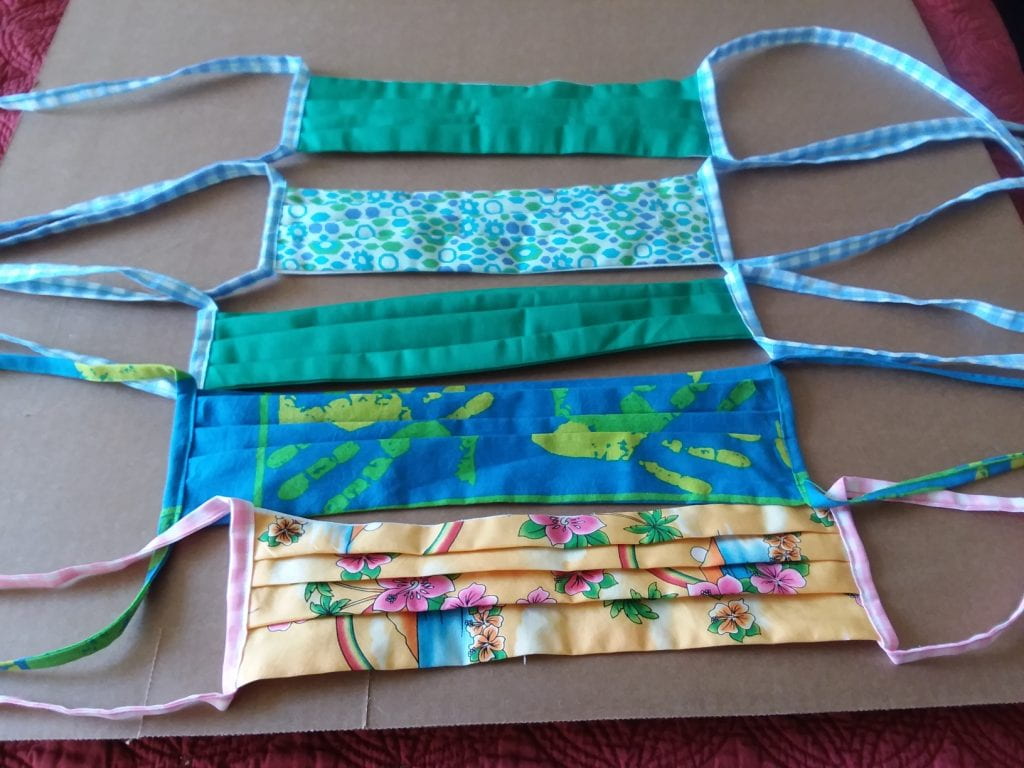
As we have all been called to serve in the ways this moment demands, our visitor services representative Evelyn Davis and her niece Marguerite Hillman have turned their attention towards making masks for our USC affiliate health care workers. They have a goal of making and donating 50 masks for our next “no-contact” donation drive scheduled for May 2nd, 2020 from 11 – 5 pm!
In addition to medical supplies which will go to LAC
USC hospital we are excepting donations of bottled waters, non-perishable food (like snack bars) and toiletries for both our healthcare workers who have to stay away from their families as well as our USC international students.
With the denial of emergency DACA funding to international students across the country this week, our USC international students need our help more than ever. Please join us in marshaling our resources to help our most vulnerable.
Sunday, April 26, 2020 – Stronger Than Hate
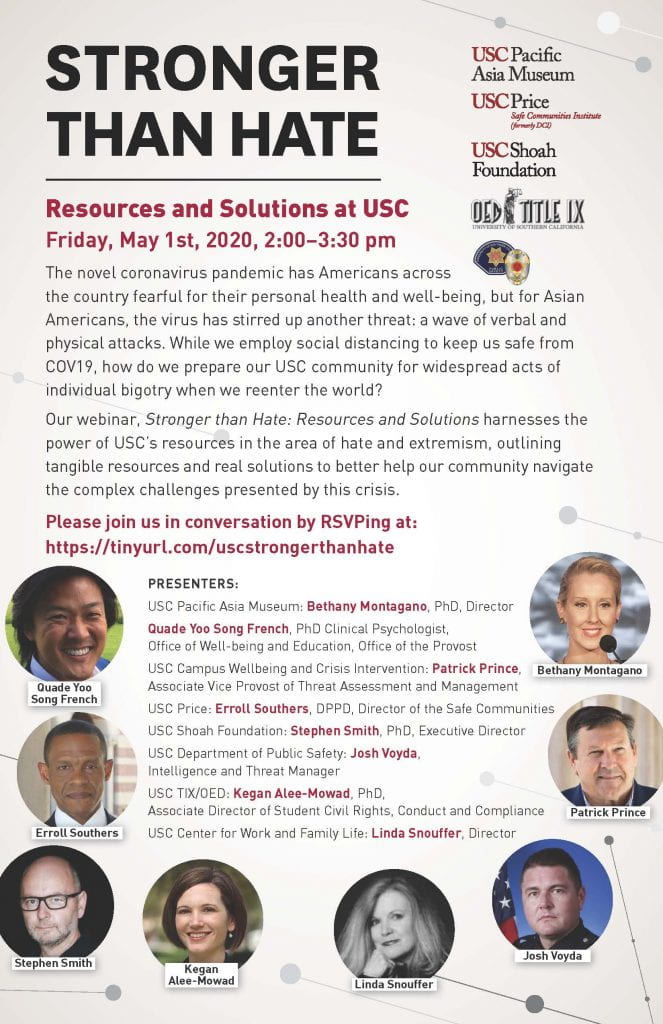
The recent rise of violent hate crimes against individuals of Asian and now Jewish heritages across the country, illuminates the dangers of racializing COVID-19 into a virus of hate. Stronger than Hate: Resources and Solutions at USC is a program developed to help us summon the social courage to confront hate collectively as a community.
This webinar will undoubtedly shed unsavory light on how we can be to each other in this moment. Demonstrating a robust capacity to tell the truth about what is really going on, however, reveals who we can be to each other at this moment. As a unified community who marshals our resources together to support our most vulnerable, we are Stronger than Hate.
Confronting hate means creating spaces where our community can feel physically safe and where human connection can help us transcend the trauma inflicted by hate. The hope is that this program will begin to nourish the transformative potential of this moment toward further strengthening and empowering our community.
Please join us in conversation on May 1st, 2020 from 2:00 pm – 3:30 pm.
Sunday, April 19, 2020: “Look for the helpers!” — Mister Rogers
Performance artist, comedian and activist Kristina Wong, who facilitated our “Empower Online” workshop last week for USC students to process the rise of racist and xenophobic attacks using art, humor and heart, is continuing to use her platform for good. She is working with a consortium of artists and friends to sew masks and get them directly to medical and emergency workers right here in our community. She is actively seeking sewing assistance and or donations of elastic and 100% cotton or tightly woven material. Just message @mskristinawong to learn more about how you can help. Thank you, Kristina, for being an upstander in our time of need!
Sunday, April 19, 2020: Mr. and Mrs. Sugihara
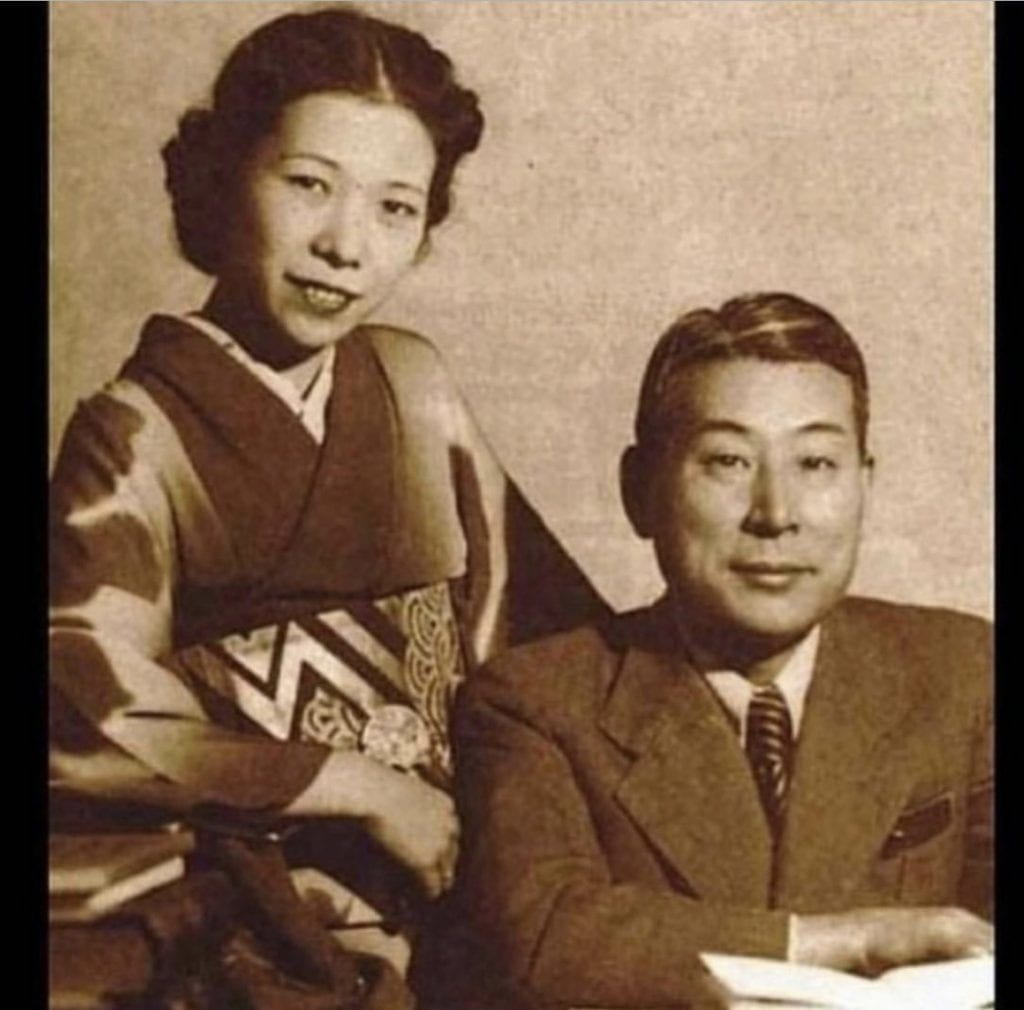
Sometimes taking action against racism and xenophobia directed at those of Asian heritages looks like this: flipping the script and presenting narratives that are hopeful and positive.
Meet Mr. and Mrs. Sugihara two heroes who remain largely invisible in history books. During WWII Mr. Sugihara served as a Japanese diplomat in Lithuania. He and his wife worked 18 hour days to hand write unlawful travel visas which allowed over 6,000 Jews to escape the Holocaust. On the day the consulate was forcibly closed and he and his wife had to evacuate they were still handwriting travel visas and throwing them from the train. When asked why he did it he said: “I told the Ministry of Foreign Affairs it was a matter of humanity. I did not care if I lost my job. Anyone else would have done the same thing if they were in my place.”
Sunday, April 19, 2020: Dr. David Ho
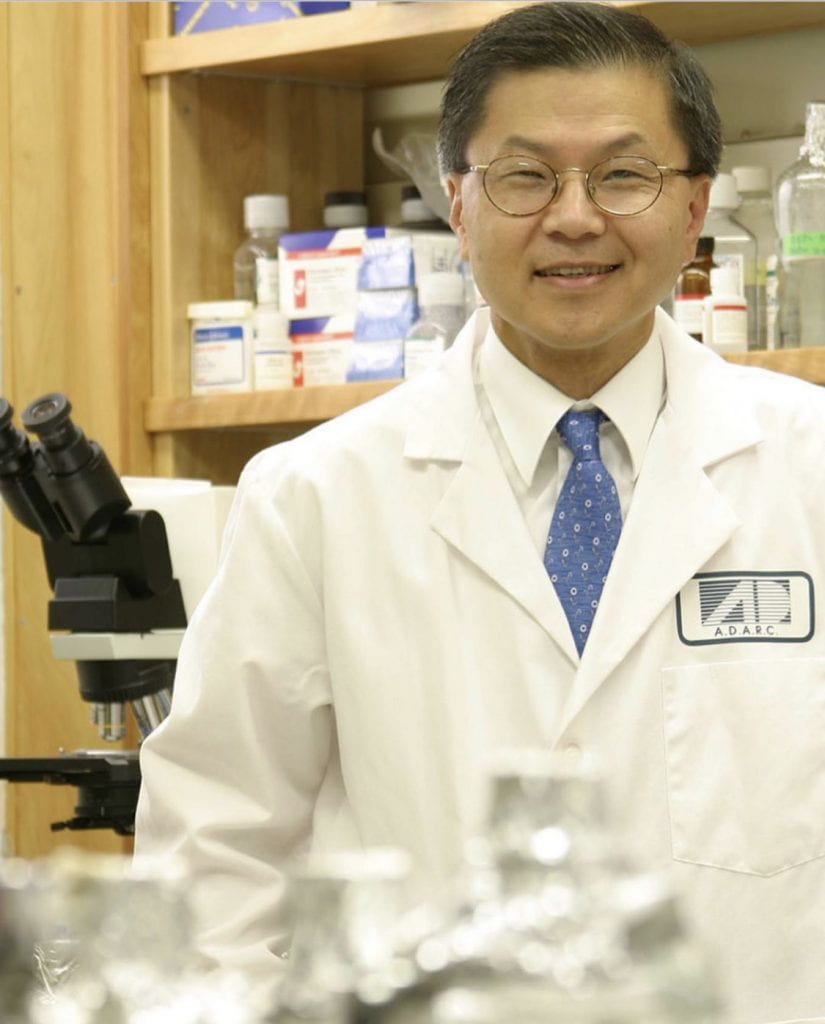
Sometimes taking action against racism and xenophobia directed those of Asian heritages looks like this: flipping the script and presenting narratives that are hopeful and positive.
Meet Dr. David Ho. He is a Taiwanese-American doctor and HIV/AIDS researcher who made groundbreaking scientific contributions that led to the understanding and effective treatment of HIV that further led to a mitigation of the spread of the virus in the 1990s. Recently Dr. Ho’s research group have engineered potent antibodies that neutralize divergent strains of HIV. The most promising neutralizing agent is a bispecific monoclonal antibody that entered a first-in-human clinical trial in 2019. The Ho Lab is funded by two NIH grants to pursue the use of engineered antibodies to purge the viral latent reservoir as a part of the international HIV cure effort. Today Dr. Ho is now leading a research team, racing to find an effective treatment for the COVID-19 virus.
#asianheroes #museumfromhome #pamfromhome
Sunday, April 12, 2020: Chinatown Quarantine, History
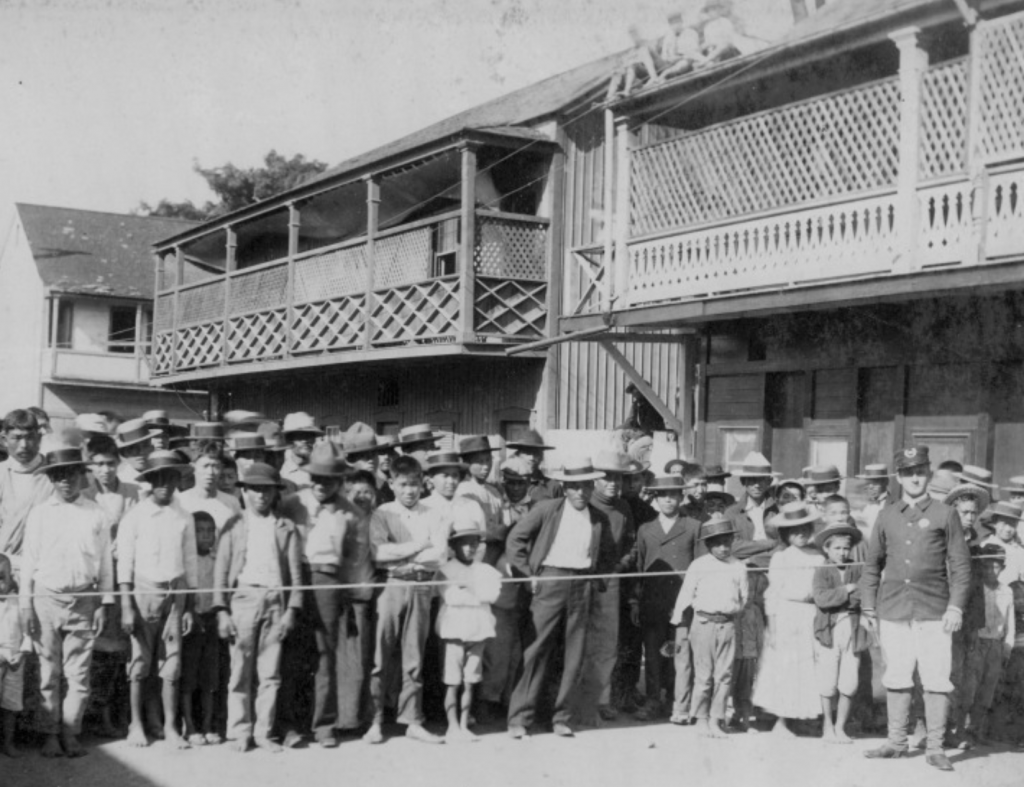
Sometimes the best way to take action is to get educated – to take a look back at our shared past, heed it’s advice, so we can move forward together.
Racializing disease in America is deeply unoriginal and has a long and unfortunate history. Take the burning of Chinatown in Honolulu as an example. In December 1899, five residents of Chinatown died of bubonic plague in Honolulu. The residents of Chinatown were comprised of residents of Chinese, Japanese and Hawaiian heritage. The Honolulu Board of Health reacted by deploying the U.S. military to lock down a fourteen-block neighborhood in Chinatown. Authorities attempted to systematically burn down buildings in the quarantined zone to “purge the plague.” Wind picked up the controlled burn and set all of Honolulu’s Chinatown aflame. The fire burned for seventeen days straight. It ravaged 38 acres, 4,000 homes and left 4,500 permanently displaced. And opposite of its original intention, the fire also spread the plague. U.S. Public Health Service (PHS) officials concluded that rats driven out by the fire carried the disease into the rest of the city. Racism helped spread the disease.
Similar instances occurred across America. Driven by racist stereotypes about China and Chinese immigrants, San Francisco targeted its Chinese population repeatedly from 1900 to 1907 amid a series of bubonic plague scares. The city locked down predominantly Chinese neighborhoods and sent in squads to inspect and fumigate houses, it restricted travel by any Chinese persons who were not vaccinated, and it attempted to forcibly vaccinate the Chinese population. Vaccination at the time was still an infant science and it could be physically horrific. Forcibly vaccinating the city’s Chinese population would be, in effect, to use them as test subjects. The attempt to combat the disease by weaponizing racial discrimination did nothing to stop it – as the city suffered outbreaks of the bubonic plague for seven straight years. The selective shutdown of immigrant neighborhoods only succeeded in distracting from the finding effective disease treatment and concentrating economic suffering caused by the epidemic on a subordinated racial minority.
When Asian immigrants or residents of Asian heritages are blamed for outbreaks of disease, every time, democracy and public health suffer.
Sunday, April 5, 2020: Donations Recap
USC PAM’s first drive-thru donation initiative that took place on April 4, 2020, to acquire medical supplies for our USC affiliate health care providers was a huge success! Yesterday hospital administrators picked up the following community donations from USC PAM :
- 11,500 medical gloves
- 1,100 medical masks
- 1,050 medical foot coverings
- 40 bottles of hand sanitizer
- 30 pairs of safety goggles
- 12 antibacterial soaps
- 10 medical gowns
Thank you from the PAMily!
Select press:
Sunday, March 29, 2020: Art in Action Signs
To mobilize your art into action, please join us today in making and posting a sign on your door, balcony or in your yard that helps spread messages of encouragement, positivity and hope.
